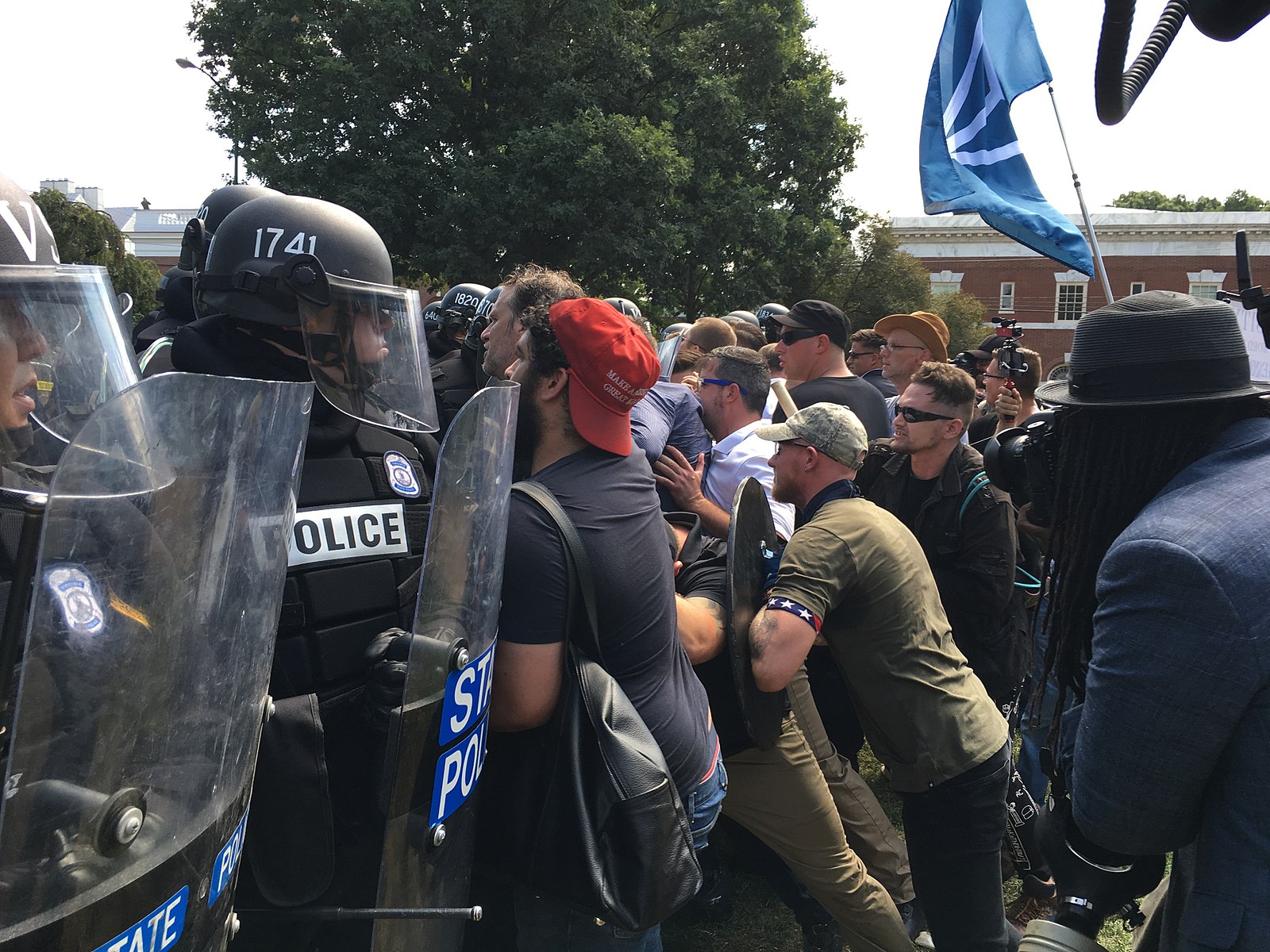State Police must release ‘Unite the Right’ rally documents, court rules

In a victory for both Virginia journalists and transparency advocates, on May 22 a Charlottesville circuit court judge ordered that a redacted version of the public safety plan devised by the Virginia State Police and the Secretary of the Office of Public Safety and Homeland Security for the deadly “Unite the Right” rally in August 2017 be released under the state’s public records act no later than June 21. The decision comes after a year-and-a-half of litigation over records requested by freelance journalists Natalie Jacobsen and Jackson Landers.
Jacobsen and Landers filed a request for the safety plans of the VSP and Charlottesville Police Department under the Virginia Freedom of Information Act following the “Unite the Right” rally that turned violent in August 2017. The violence that occurred at the rally led to the death of 32-year-old Heather Heyer and the injuries of 19 others. The journalists sought access to the safety plans to report on what precautions law enforcement officials took before the rally itself, and whether police were told to respond to violence in a specific way.
After authorities denied the records requests — claiming the documents are exempt from Virginia FOIA requirements because they were “tactical plans” and their release would compromise public safety — Jacobsen and Landers filed a lawsuit asking a court to order the production of the documents. Attorneys from the Reporters Committee for Freedom of the Press represented Jacobsen, who made the requests to the VSP and Office of Public Safety, and Landers, who made the request to the City of Charlottesville, in their lawsuit. The City of Charlottesville reached a settlement and released documents that Landers had requested. Reporters Committee attorneys continued to represent Jacobsen to obtain documents from the VSP and Office of Public Safety.
In a brief filed in the case, Jacobsen and Landers argued that releasing the plans would not compromise public safety, as parts of them had already been disclosed in other public reports. They also argued that even if parts of the requested documents are excluded from disclosure requirements under state public records law, authorities have a duty to redact those specific passages from material ultimately provided to requesters, but cannot withhold the document in its entirety.
In April 2018, the Charlottesville Circuit Court ruled that the VSP plan must be released in redacted form. It then stayed its order, allowing VSP and the Office of Public Safety to delay releasing the plan so they could appeal. In November 2018, the Virginia Supreme Court dismissed the appeal. The Charlottesville Circuit Court’s latest ruling lifts the stay. The VSP and Office of Public Safety must now release the redacted plan to Jacobsen by June 21, as well as provide a copy of the plan to the court, which will consider whether their redactions are proper under Virginia FOIA.
For Jacobsen, the ruling is a reminder to public officials, including law enforcement, that they are subject to transparency and accountability.
“This shows that they are not above the law, and that it is the public’s right to see what happened,” she said. “We’re allowed to also make our own judgments and see the information ourselves, especially when things go wrong.”
“The Virginia State Police has said it will comply in good faith with the requirements of Virginia FOIA when redacting the document,” Reporters Committee staff attorney Caitlin Vogus, who is representing Jacobsen, said. “We will also be reviewing the redactions to ensure they are appropriate.”
It is unclear, however, what form the redactions will take. Judge Richard E. Moore suggested that the VSP could redact the document by deletion, indicating where text had been removed, if other forms of redaction would jeopardize public safety. Jacobsen and the Reporters Committee objected to this method, noting that the VSP could simply “black out” redacted text. This traditional and more forthcoming method of government document redaction indicates to the reader how much of the document is unavailable to them.
“If it’s redaction by deletion,” Jacobsen explained, “I simply won’t be able to have any idea at all about what scale of redaction they actually did.”